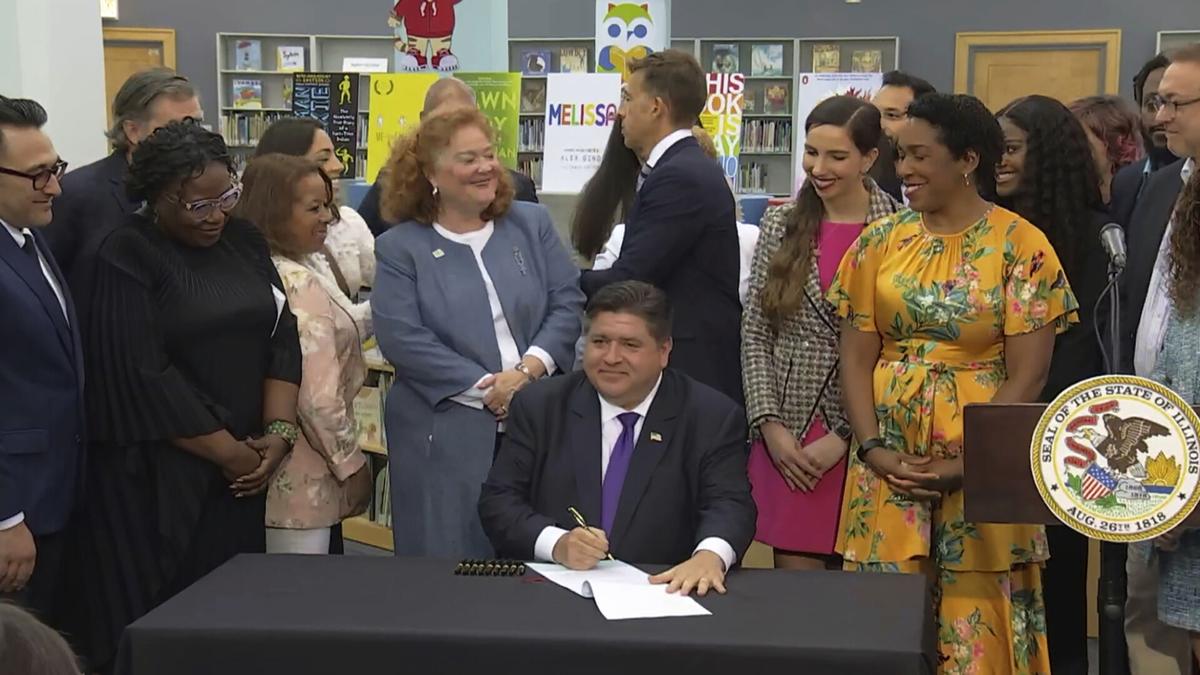By Aila Slice
Illinois has become the first state in the nation to legally prohibit libraries from banning books.
During a ceremony in Chicago on Monday, Democratic Governor J.B. Pritzker signed a bill that “protects the freedom of libraries to acquire materials without external limitations” and threatens to pull funding from libraries unless they agree that books cannot be “proscribed, removed, or restricted because of partisan or personal disproval.”
The new law, which takes effect in January, comes amid a largely conservative movement to ban books from school libraries to counter any left-leaning narratives about race, gender, sexuality and other issues that Republicans sometimes refer to as tenets of “woke ideology.” “Young people shouldn’t be kept from learning about the realities of our world” Pritzker said in a statement. “I want them to become critical thinkers, exposed to ideas that they disagree with, proud of what our nation has overcome, and thoughtful about what comes next.”
“Everyone deserves to see themselves reflected in the books they read, the art they see, the history they learn,” he added. “In Illinois, we are showing the nation what it really looks like to stand up for liberty.”
The bill directs Illinois libraries to adopt the “Library Bill of Rights” of the American Library Association (ALA). The organization said that there were 67 attempts to ban books in Illinois during 2022 alone.
ALA documented a record 1,269 “demands to censor library books and resources” in 2022 nationwide, with “the vast majority” being “written by or about members of the LGBTQIA+ community or by and about Black people, Indigenous people, and people of color.”
“The Illinois legislation responds to disturbing circumstances of censorship and an environment of suspicion—not because there is a problem that needs to be solved,” Deborah Caldwell-Stone, director of ALA’s Office for Intellectual Freedom and executive director of the Freedom to Read Foundation, said in a statement emailed to Newsweek.
“Library professionals endeavor to curate collections that meet the information needs of everyone in their communities with the resources they have,” added Caldwell-Stone. “The best way to support libraries and librarians facing book bans is to provide new funding to promote full access to libraries for all and protect Americans’ First Amendment freedoms.”
Laura Hois, a chapter co-chair of the conservative group Awake Illinois, condemned the new law as an affront to “parental rights” in comments to Chicago ABC station WLS.
“We object to gender influencing, indoctrination of our kids toward anti-racism and leftist agendas,” Hois said. “We’re objecting to those things, yet Governor Pritzker keeps taking more and more steps to extinguish parental rights.”
Pritzker rejected that argument during the bill-signing ceremony on Monday, while suggesting that efforts to ban books are part of a “vitriolic strain of white nationalism coursing through our country” in an attempt to “determine whose histories are told.”
“The argument for banning books always begins with the claim that it’s about protecting the children,” Pritzker said. “Of course we all want to protect our children, so they’re reading age-appropriate material.”
“But banning books from libraries isn’t about that at all,” he continued. “Book bans are about censorship, marginalizing people, marginalizing ideas and facts. Regimes ban books, not democracies.”

